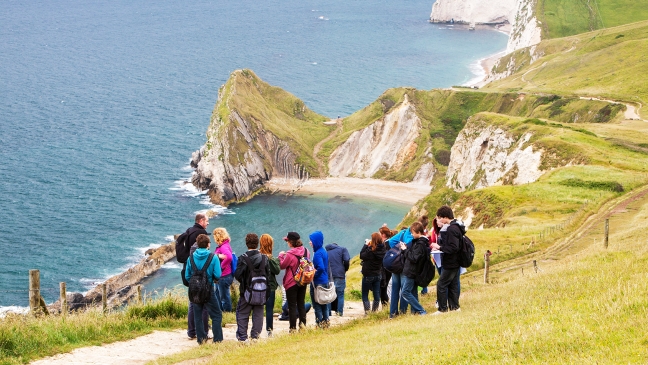Whenever a colleague approaches me, full of enthusiasm and wanting to plan a school trip for Early Years Foundation Stage at the start of a new school year, all I really want to say is, “Are you mad?”
I remind them it’s a very busy term: children need to settle in, there are baseline assessments to complete, home visits and, then, all of the activity leading up to Christmas. Sometimes they’re persuaded, sometimes they aren’t. When it’s the latter, I reluctantly begin the mountain of paperwork that needs to be completed.
I have a love/hate thing with school trips. Each time a trip comes along, I feel the dread of the responsibility, the loathing of the paperwork, all the while knowing the enjoyment it will bring to the children.
Recently, our school business manager tightened the trip procedures, which means planning to take children on a trip has become a huge operation.
More and more schools are now struggling with the cost of trips - but money aside, there are endless pieces of documentation to complete before you even set foot out of the door.
I remember, as a very young student teacher, naively scoffing slightly when a teacher told me she found school trips stressful. I just couldn’t understand why. Fast forward to a few years later, when I have had to step up to the full, and frankly terrifying, responsibility of being group leader, I understand where she was coming from.
It’s the horror stories we listen to in the staffroom that have me imagining all sorts of terrifying scenarios. One child fell out of a tree and broke her arm. Another decided on impulse to bolt across a busy car park and had to be collected early. Then there’s the particularly memorable tale of a teacher who had to call the park ranger because she and her pupils got lost in a 2,000-acre country park.
These stories haunt me.
I worry constantly, both in the lead-up and during the day itself. Once you have filled out the risk assessments - in which you are required to picture and then list all potential worst-case scenario hazards - for every small section of the day, it is hard to “unsee” the risks.
When the day arrives, I am like a mother hen obsessively counting little florescent yellow bibs at every opportunity. I do try to relax and enjoy it, but it is only when we return to school, with each and every small child and staff member back in one piece, that I can breathe a big sigh of relief.
When we’re back, I often wonder if it was worth the effort - but then I remember the reaction of the children.
One on occasion we went on a train and then a ferry, and the sheer joy on their beaming faces and the laughter as the engine roared when we began to move was so lovely. You would think we had been to Disneyland. They had the best time enjoying the simple pleasures and learning from the experience. That’s the magic in school trips.
From this recent experience, I reflected that there are some things that help to ease the pressure.
How to plan a school trip
- Give yourself plenty of time. It helps to spread out the paperwork over a few weeks. I have learned it is much better to break the tasks down into chunks and allocate time in the diary weekly to get things completed.
- Always go to the location to do a recce, even if you have been before. It really helps to inform the risk assessment. Ask yourself, “Where are the nearest toilets? Where will we gather to eat? Is there shelter if needed?”
- Work as a team to talk through the risk assessments and share some responsibilities. Ask “what if” questions to anticipate any issues - “What if the bus breaks down?” “What if a child slips? Who will be the paediatric first-aider?”
- Plan a generous adult-child ratio. Legally this is one to five for Reception children, but it really benefits to take an extra adult to accompany any children with special educational needs and disabilties (SEND) on a one-to-one basis - some sites offer extra adults free tickets when they support SEND children.
- Consider including an extra adult to “float”. On a recent trip this worked really well: the floating adult didn’t have a group and so could be responsible for lots of things; for example, being the crossing patrol, walking ahead to let the train guard know we were arriving, and helping with behaviour and toilet trips.
- Carefully choose your best parent helpers. We all know from experience that some parents are more helpful than others, so trust your instincts: you want support rather than extra stress on the day. Mostly parents who have trip experience or who are already volunteers or work with children are the best option.
Helen Pinnington is early years foundation lead at St Thomas More’s Catholic Primary School in Bedhampton, Hampshire





